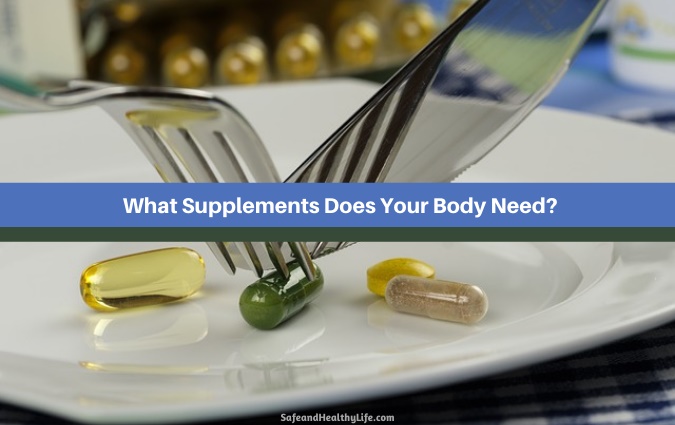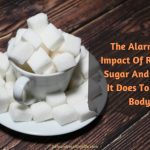
Most of us can get all the nutrients our body needs through eating a healthy, balanced diet, but there may be certain times in life when our body requires more vitamins and minerals than it is getting from food. Factors that may influence this include age, lifestyle, health, or pregnancy.
A report from the Centers for Disease Control and Prevention (CDC) found that one in 10 people have at least one vitamin deficiency.
If you suspect you may be running low on certain essential nutrients your body may reveal a deficiency through one or more of these common signs:
- Brittle hair and nails
- Hair loss
- Bruising easily
- Fatigue
- Bloodshot eyes
- Mouth ulcers
Knowing what you need in your daily supplements is the next question and in this article, we will outline five essential vitamins and minerals your multivitamin should contain.
Vitamin D
Vitamin D helps your body to absorb calcium and maintain healthy bones, teeth, and muscles. It also supports the nervous system and the functioning of the brain and immune system.
The best source of vitamin D is the sun. When exposed to sunlight the skin cells make vitamin D from cholesterol. This is why a lack of sunlight, especially during the winter months, can cause a deficiency.
A lack of vitamin D can lead to a loss of bone density causing bone fractures and conditions such as osteoporosis, rickets, and osteomalacia.
Vitamin D is not present in many foods and tends to be found mainly in fatty fish and meat products, making it harder for vegetarians and vegans to get enough in their diet.
Magnesium
Magnesium is important for many bodily functions such as bone formation, muscle, and nerve function as well as playing a vital role in cardiovascular health.
A magnesium deficiency can be caused by a lack of intake through diet but also through health problems such as diabetes, chronic diarrhea, and poor absorption.
Low levels of magnesium can cause an electrolyte disturbance in the body which can cause symptoms that may include muscle spasms, weakness, and fatigue, nausea, loss of appetite, and poor coordination.
Magnesium-rich foods include beans, tofu, nuts, brown rice, pumpkin, chicken, spinach, beef, and broccoli.
When choosing your multivitamin, make sure it contains magnesium. To learn more about ingredients you can read some real supplement reviews here.
Zinc
Zinc is found throughout your body and is a mineral that supports your immune system, DNA synthesis, and metabolism. It also plays an important role in wound healing, blood clotting, and your sense of taste and smell.
A lack of zinc in your diet can lead to a loss of appetite, hair loss, low immunity, and skin lesions. Related.
A healthy diet can provide your body with enough zinc and some of the food sources include red meat, chicken, and seafood (especially shellfish, oysters, and clams).
Vegetarian and plant-based foods that are high in zinc include spinach, whole grains, pumpkin seeds, and nuts.
Iron
Iron is an essential mineral for hemoglobin production as 70% of the body’s iron is found in red blood cells. It is also needed for growth and development and bodily functions such as temperature regulation.
Low levels of iron can cause anemia as the body’s hemoglobin levels become lower than normal. Iron deficiency is more likely in women due to menstrual blood loss and pregnancy. Some of the symptoms of iron deficiency include extreme fatigue, dizziness, pale skin, weakness, and brittle nails.
Many iron-rich foods include red meat, seafood, and poultry, therefore, vegetarians need to ensure they are getting enough iron from their diet. Dark green, leafy vegetables are a good source of iron, as are lentils, beans, and tofu.
B Vitamins
B vitamins are important for many bodily functions ranging from energy levels to healthy brain function and the transportation of oxygen and nutrients around the body.
There are eight B vitamins in total:
- Thiamine (B1)
- Riboflavin (B2)
- Niacin (B3)
- Pantothenic acid (B5)
- Pyridoxine (B6)
- Biotin (B7)
- Folate (B9)
- Cobalamin (B12)
The symptoms of a vitamin B deficiency vary and will depend on which B vitamin you are deficient in. Symptoms can range from muscle weakness and anemia to memory loss or depression. Related.
Some vitamin B-rich foods include meat, fish, poultry, dark green vegetables, dairy products, and fortified cereals.
With the information in this article, you can make the most of your supplementary intake.
About The Author:
Pat Lee was born in January 1992. Today, she is a digital marketer who has several years of experience in working with non-profit organizations. She has extensive knowledge in the fields of Education, Computer Science, and Psychology. When she isn’t helping build brands, she practices Muay Thai and runs marathons.




